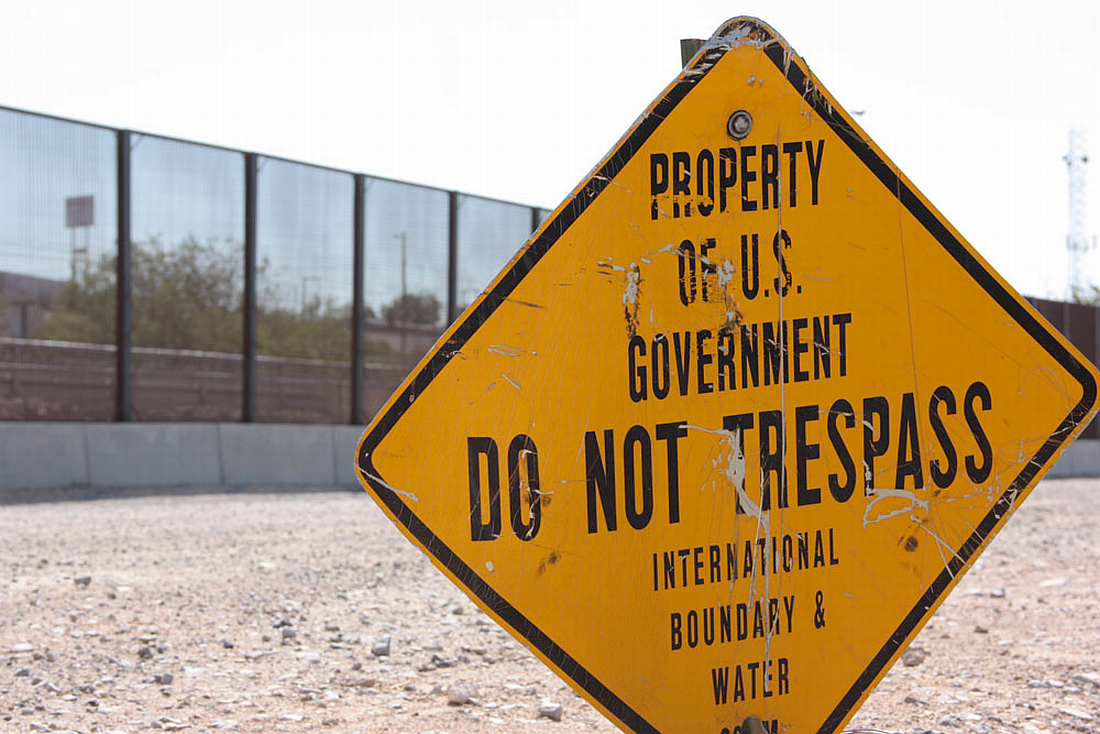Illegal immigrants self-deporting ahead of Trump’s return to the White House
12/11/2024 / By Willow Tohi

- A growing number of illegal immigrants are choosing to return to their home countries ahead of President-elect Trump’s return to office, citing fears of stricter immigration enforcement.
- Trump plans to dismantle lenient Biden-Harris policies, including ending the “CBP One” app for asylum seekers and re-implementing the “Remain in Mexico” policy to deter illegal crossings.
- The administration aims to combat illegal immigration by deploying U.S. Special Operations forces against cartels involved in human smuggling, which are described as “terrorist organizations.”
- In cities like Springfield, Ohio, Haitian immigrants and others are fleeing to sanctuary cities or self-deporting due to fears of mass deportations and the termination of temporary protected status.
- A CBS News/YouGov poll shows strong public support for deporting illegal immigrants, and legal experts argue that using the military for deportation support is constitutionally permissible under the Posse Comitatus Act and Insurrection Act.
With less than two months before President-elect Donald Trump returns to the White House, a growing number of illegal immigrants are abandoning their attempts to enter the United States and are voluntarily returning to their home countries. This trend, driven by the looming prospect of a Trump administration committed to enforcing strict immigration policies, marks a significant shift in the dynamics of the border crisis.
Reports from Mexican officials indicate that up to 100 illegal immigrants in Mexico have requested “voluntary return” to their countries of origin. These individuals are either paying for their own return or seeking state assistance to do so. Many have explicitly cited Trump’s impending return to office and his promises to crack down on illegal immigration as the primary reasons for their decision to leave. This early wave of self-deportation suggests that the mere threat of enforcement is already having a tangible impact on illegal immigration patterns.
Trump has made clear his intention to dismantle the Biden-Harris administration’s lenient immigration policies, which have facilitated the mass entry of illegal immigrants into the United States. One of his first targets will be the government-approved app “CBP One,” which has allowed illegal immigrants to digitally apply for asylum and receive fast-tracked amnesty without ever appearing in an immigration court. Trump has vowed to eliminate this loophole, which has enabled de facto amnesty on a massive scale.
Additionally, Trump plans to re-implement the “Remain in Mexico” policy, a successful initiative from his first term that required asylum seekers to remain in Mexico while their applications were processed. This policy effectively reduced the backlog of asylum cases and deterred illegal crossings by ensuring that those seeking entry faced a rigorous and transparent legal process.
The Trump administration’s approach to immigration enforcement is not limited to border control. Incoming Border Czar Tom Homan has emphasized the administration’s commitment to targeting the cartels that profit from human smuggling. Homan has described these criminal organizations as “terrorist organizations” that have killed more Americans than any foreign terrorist group. Trump’s plan to deploy the full might of U.S. Special Operations forces against these cartels represents a decisive shift in the fight against the root causes of illegal immigration.
Domestically, the situation is also evolving. In cities like Springfield, Ohio, where the Biden-Harris administration imported thousands of Haitian immigrants in 2021, residents are witnessing a reversal of the previous administration’s policies. Haitian immigrants, many of whom were granted “temporary protected status,” are now fleeing to sanctuary cities like Chicago and New York or even self-deporting to countries like Canada and Brazil. This exodus is driven by the fear of Trump’s promised mass deportation program, which includes terminating temporary protected status for Haitians and other groups.
The prospect of mass deportations has created what Andrew Arthur of the Center for Immigration Studies calls a “virtuous circle” of enforcement and compliance. As illegal immigrants face the real threat of deportation, many are choosing to leave voluntarily, easing the burden on federal enforcement efforts. This dynamic underscores the effectiveness of deterrence in addressing the border crisis.
However, not all cities are welcoming the prospect of stricter immigration enforcement. Sanctuary cities, where local officials refuse to cooperate with federal deportation efforts, are preparing to resist Trump’s policies. Denver Mayor Mike Johnston, for example, initially suggested using city law enforcement to block deportation efforts, though he later retracted that statement. Despite such resistance, Homan has made it clear that federal law enforcement will not be deterred, and sanctuary cities will not be exempt from deportation efforts.
Americans support Trump’s plan
The American public appears to support Trump’s approach. A recent CBS News/YouGov poll found that 73 percent of Americans believe deporting illegal immigrants should be a priority for the Trump administration, with 45 percent considering it a high priority. Additionally, nearly 60 percent of respondents support a national program to find and deport all illegal immigrants, and 64 percent favor mobilizing federal law enforcement agencies to assist with deportations.
Legal experts argue that Trump’s plan to use the military to support deportation efforts is constitutionally permissible. Patrick O’Malley and Joe Buccino of RealClearWire contend that the Posse Comitatus Act and the Insurrection Act, when properly interpreted, allow the president to use active-duty forces for support operations, such as transportation and surveillance, without violating the law. This legal framework provides a basis for the Trump administration to expand military involvement in immigration enforcement.
As Trump prepares to take office, the early signs of self-deportation and the dismantling of lenient policies offer a glimmer of hope for those who believe in secure borders and the rule of law. The border crisis, long a source of frustration for millions of Americans, may finally be on the path to resolution. With a clear mandate from the American people and a commitment to enforcing the law, the second Trump administration is poised to restore order to the nation’s immigration system.
Sources include:
AmGreatness.com
Submit a correction >>
Tagged Under:
big government, border crisis, Border Patrol, border security, Donald Trump, invasion usa, Joe Biden, migrants, national security, Open Borders, progress, sanctuary cities, White House
This article may contain statements that reflect the opinion of the author
RECENT NEWS & ARTICLES
COPYRIGHT © 2017 BIG GOVERNMENT NEWS




















